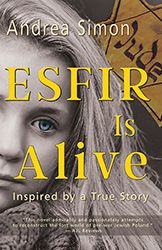Sixty years after the Shoah, our struggles with this seminal event are hardly over. Indeed, the more this immense tragedy recedes in time, the greater our need to understand it and its implications. We probe its dark recesses searching for that ever elusive shard of meaning.
Even as our fascination increases, we inevitably contemplate the Shoah from a distance — temporal, cultural and perspectival. Yet there is truth in the warning displayed in rear view mirrors: “objects are closer than they appear.” It may have transpired in the last century, but it continues to grip and torment.
The process of reckoning with the Holocaust has generated some serious and profound reflection. In addition to the enormous body of historical scholarship, the fictional and reflective literature on the subject is impressive, and it includes some of the great writing of our time — works ranging from the poetry of Charlotte Delbo and Paul Celan, to the novels and essays of Primo Levi, Aharon Appelfeld, Eva Hoffman, Ida Fink and Elie Wiesel, to name only a few of the most notable. Wiesel’s newest novel, The Time of the Uprooted, will find its rightful place in this canon of fictional comtemplation.
In recent years it has become common to speak of “the memory” of the Holocaust and to give this faculty a privileged status. This is particularly so as time moves us further away from the Holocaust landscape. The trustees of memory are the survivors. Memory, in all its forms, however, is slippery and illusive. There are the challenges of repressed memory, of trauma, the inevitable forgetfulness and blurring, the defenses erected to allow a sense of normalcy to emerge. Elie Wiesel, in this haunting, beautiful and suggestive novel, probes these themes with subtlety and skill.
The novel follows the life of Gamaliel Friedman, who flees Czechoslovakia with his parents in 1939 for the apparent safety of Hungary. This will initiate a life of suffering, loss, rootlessness, hiding, identity disguises and despair. Five years later, when the Nazis begin to deport the Hungarian Jews to Auschwitz, Gamaliel’s parents, in desperation, entrust him to a young Christian cabaret singer named Ilonka. She becomes not only his protector, but surrogate mother. With his Jewish identity hidden by this courageous woman, Gamaliel survives the war, but in 1956, during the failed Hungarian revolution against Soviet communism, he leaves Budapest, painfully parting from Ilonka. Orphaned once again, he settles in Vienna, Paris, and finally, after several failed relationships and a disastrous marriage, in New York, where he works as a ghostwriter, living and writing the lives of others.
Gamaliel, like most refugees, is always the outsider, never at home. “Happiness for him is a moment’s rest. Love never ending is the blink of an eye.” Eventually he falls in with a group of refugees: Bolek, a survivor of the Warsaw Ghetto, Diego, a Spanish Civil War veteran, Yasha, a victim of the Gulags, Gad, a former Israeli intelligence agent, and Rabbi Zusya, a Hasid, who reminds him that hope and faith, even God, can be found in the most ordinary of life’s experiences. When Gamaliel is asked to help draw out a critically injured and disfigured Hungarian woman who is not communicating, he is forced to confront directly the memories of lost loved ones and begins a process of reconciliation with the past that may allow him to live more fully in the future.
This beautifully written and introspective novel is engaging and multi-layered. There are no simple answers offered to how to confront the Holocaust abyss. The reader is left to struggle with the questions that course through the lives of the characters in the novel and like them must still seek that ever-illusive equilibrium.




